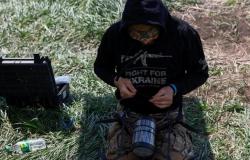Terry Anderson is gone forever, after having lived through the hardest experiences one can face. Marine sergeant in Vietnam, Associated Press correspondent in the Lebanese Hell and finally hostage of pro-Iranian terrorists for almost seven years. A symbol of courage but also the testimony of the Great Games.
Born in Ohio in 1947, he entered the armed forces at a very young age with which he served in numerous countries abroad, including mission in the Vietnamese conflict. Once he was dismissed he launched himself into his great passion: the journalism. Work takes him to the Middle East, where he is “headquartered”. Beirut, where he decides to stay despite the agency offering to move him to safer Cyprus. We are at the beginning of the 80s, in Lebanon they shoot themselves, you can easily die under bombs or from a stray bullet or from more hidden threats. The risk is high. Anderson discovered this on the morning of March 16, 1985 when an armed commando grabbed him at the exit of a tennis court and forced him into a Mercedes. It’s the beginning of the ordeal. The journalist was kidnapped by a group of pro-Iranian terrorists, cells of the nascent Hezbollah that hide behind phantom acronyms, including the “universal” one of Islamic Jihad. Together with other movements they hunt foreigners, bargaining chips, existences to use as a form of pressure. They will take many away, some will never return, swallowed up by a black whirlpool.
Terry’s kidnappers will justify the operation as a retaliation for Washington’s support in the bombings against Muslims and Druze, but in reality it is an excuse, there is much more behind it. Several kidnapped people are part of a move by Tehran to punish the USimpact on Western public opinions – France will also suffer the same tactic – and to obtain a sensational ransom. Ronald Reagan’s White House, with a daring operation, will give up weapons and missiles in the scandal known as Irangate, a complex ring of money, war cargo, spies and characters that will link the affairs of Lebanon to the anti-Sandinista rebels of Nicaragua.
The scheme is incredible: Americans illegally view equipment in Tehran through mediationre and they use the proceeds to finance the contra guerrillas operating in Central America. It is the price that the ayatollahs impose to guarantee the release of numerous Americans who ended up in the “dungeons” of the Lebanese capital or in the Bekaa valley.
In the background a long process, with behind-the-scenes negotiations, barter, traps, intrigues. The prisoners suffer greatly and Anderson will remain chained for six years and nine months. It is difficult to imagine what he suffered, with the fear of being murdered, closed in the dark and alone. The journalist will be freed on December 4, 1991 and only then will he be able to meet his daughter Sulome, born after he was taken by the criminals.
The return to “normality” will be complicated. And it couldn’t be otherwise. Post-traumatic stress, invisible wounds, moments he couldn’t forget and even some problems with new activities. Anderson will forgive his captors but will sue Iran, considered the instigator of the kidnapping, and will obtain compensation of 26 million dollars obtained from Iranian funds seized in American banks. Terry later opened a restaurant, taught, tried politics and launched various initiatives, some of which ended in failure. What remains is his story and that of blackmail, of the secret wars that continue to agitate that corner of the world with the same protagonists and the same methods.





